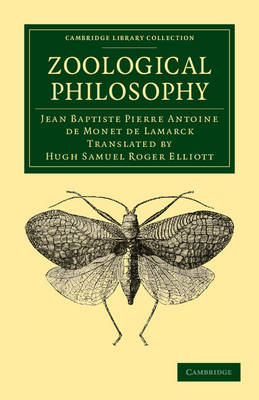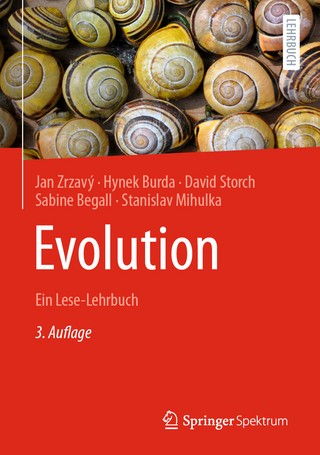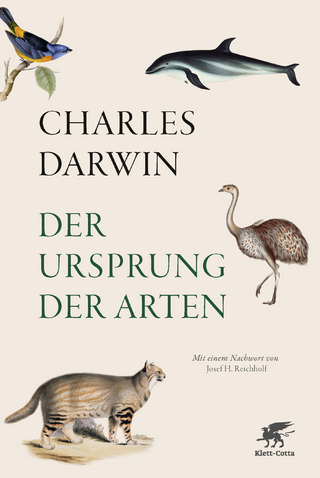
Zoological Philosophy
Cambridge University Press (Verlag)
978-1-108-03842-3 (ISBN)
The great French zoologist Lamarck (1744–1829) was best known for his theory of evolution, called 'soft inheritance', whereby organisms pass down acquired characteristics to their offspring. Originally a soldier, Lamarck later studied medicine and biology. His distinguished career included admission to the French Academy of Sciences (1779), and appointments as Royal Botanist (1781) and as professor of zoology at the Musée Nationale d'Histoire Naturelle in 1793. Acknowledged as the premier authority on invertebrate zoology, he is credited with coining the term 'invertebrates'. In this 1809 work, translated into English in 1914, he outlines his theory that under the pressure of different external circumstances, species can develop variations, and that new species and genera can eventually evolve as a result. Darwin paid tribute to Lamarck as the man who 'first did the eminent service of arousing attention to the probability of all change … being the result of law'.
Introduction Hugh Elliot; Preface; Preliminary discourse; Part I. Considerations on the Natural History of Animals, their Characters, Affinities, Organisation, Classification and Species: 1. On artificial devices in dealing with the productions of nature; 2. Importance of the consideration of affinities; 3. Of species among living bodies, and the idea that we should attach to that word; 4. General principles concerning animals; 5. On the true arrangement and classification of animals; 6. Degradation and simplification of organisation, from one extremity to the other of the animal chain, proceeding from the most complex to the simplest; 7. Of the influence of the environment on the activities and habits of animals, and the influence of the activities and habits of these living bodies in modifying their organisation and structure; 8. Of the natural order of animals, and the way in which their classification should be drawn up, so as to be in conformity with the actual order of nature; Additions to the subject-matter of Chaps. 7 and 8; Part II. An Enquiry into the Physical Causes of Life, the Conditions Required for its Existence, the Exciting Force of its Movements, the Faculties Which It Confers on Bodies Possessing It, and the Results of its Presence in Those Bodies: Introduction; 1. Comparison of inorganic bodies with living bodies, followed by a parallel between animals and plants; 2. Of life, what it consists of, and the conditions of its existence in a body; 3. Of the exciting cause of organic movements; 4. Of orgasm and irritability; 5. Of cellular tissue, regarded as the matrix in which all organisation has been cast; 6. Of direct or spontaneous generation; 7. Of the immediate results of life in a body; 8. Of the faculties common to all living bodies; 9. Of the faculties peculiar to certain living bodies; Summary of Part II; Part III. An Enquiry into the Physical Causes of Feeling into the Force Which Produces Actions, and Lastly into the Origin of the Acts of Intelligence Observed in Various Animals: Introduction; 1. Of the nervous system, its formation, and the various sorts of functions that it can fulfil; 2. Of the nervous fluid; 3. Of physical sensibility and the mechanism of sensation; 4. Of the inner feeling, the emotions that it may experience, and the power which it thence derives for the production of actions; 5. Of the force which produces the actions of animals, and of certain peculiar facts resulting from the use of the force; 6. Of the will; 7. Of the understanding, its origin, and the origin of ideas; 8. Of the principal acts of the understanding, or those of the first order from which all the rest are derived; Index.
| Erscheint lt. Verlag | 3.11.2011 |
|---|---|
| Reihe/Serie | Cambridge Library Collection - Darwin, Evolution and Genetics |
| Übersetzer | Hugh Samuel Roger Elliott |
| Zusatzinfo | Worked examples or Exercises |
| Verlagsort | Cambridge |
| Sprache | englisch |
| Maße | 140 x 216 mm |
| Gewicht | 640 g |
| Themenwelt | Naturwissenschaften ► Biologie ► Evolution |
| Naturwissenschaften ► Biologie ► Zoologie | |
| ISBN-10 | 1-108-03842-5 / 1108038425 |
| ISBN-13 | 978-1-108-03842-3 / 9781108038423 |
| Zustand | Neuware |
| Informationen gemäß Produktsicherheitsverordnung (GPSR) | |
| Haben Sie eine Frage zum Produkt? |
aus dem Bereich


